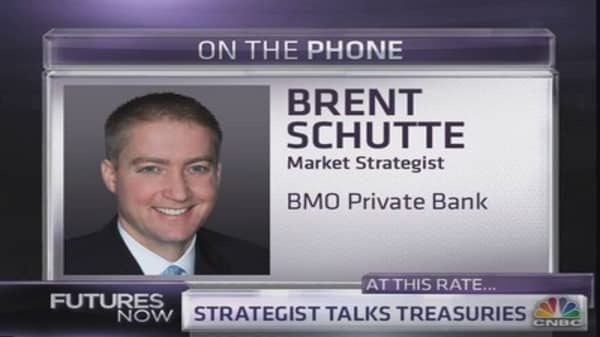In addition, rising interest rates take their toll on home affordability. As yields on Treasury securities rise, they lead to increases in mortgage rates. Higher mortgage rates mean less buying power for home purchases. Shares of some of America's biggest home builders have also suffered, like DR Horton (-31 percent) and Pulte Group (-27 percent).
On the flip side, there have been some real positive standouts during that time, namely industrial stocks. They're the best performing sector in the S&P 500 since early May. Diversified manufacturer Dover ( 28 percent) and Lockheed Martin ( 24 percent) are helping to lead the way higher in that sector. Even some consumer discretionary names that aren't necessarily that retail focused are doing well, like Goodyear Tire & Rubber ( 71 percent).
(Read more: Economy trumping Syria with investors)
These shorter-term trends make sense when comparing them to stock market behavior in past periods of rising rates. S&P Capital IQ Chief Equity Strategist Sam Stovall looked at performance for the S&P 500 going all the way back to February of 1970. He then focused on those time periods when interest rates were rising and looked at which sectors stood out.
Just as now, the worst performing stocks during periods of rising interest rates are utilities, financials and telecom services. The best performing stocks when rates move higher tend to be technology, energy and materials. Those are the more cyclical, or economically sensitive companies. In other words, the ones that rise or fall more based on the health of the bigger-picture economy.
For investors, a big concern is whether or not interest rates continue on their path higher and if they do, can stocks continue to rise with them. If history holds true, then it might bode well for owning the stocks that bet on a growing economy.
(Read more: Art Cashin: Beware this market 'trip wire')
However, even in data going back to 1970, there hasn't been a time where markets have been as profoundly affected by Federal Reserve intervention to hold down interest rates. The amount of monetary stimulus being applied to the economy is unprecedented.
Could that be distorting the fundamental story of how stocks perform in a time of rising rates? The jury is still out, but if you believe rising rates are here to stay because of an improving economy, it may be worth looking at cyclical stocks. If you're still bearish, the drop in less economically sensitive, or defensive stocks, could be a buying opportunity.
—By CNBC's Dominic Chu. Follow him on Twitter @thedomino.





